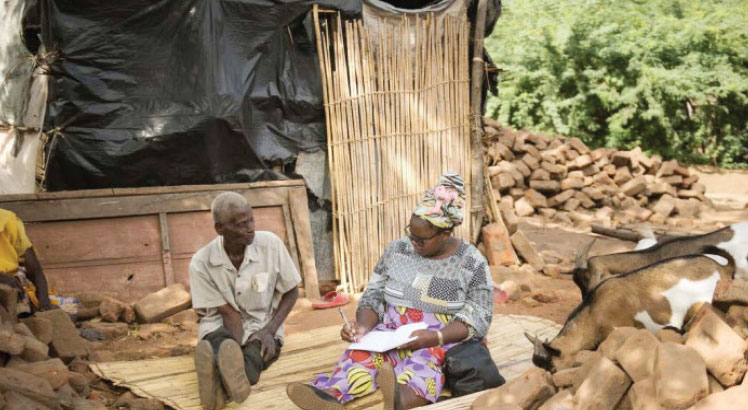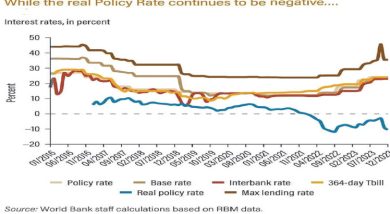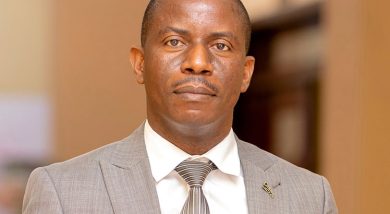‘I’ve nothing to depend on’
W
ith world leaders at CoP27 under pressure to act on loss and damage finance, Joyce Luka, from Chikwawa District, shares insights from the destruction caused by Cyclone Ana in southern Africa.
“Everything that I had such as goats, chickens and guinea fowls was washed away by the floods. I have nothing to rely on,” she says. “My life is at risk. We are approaching the rainy season, but I have not yet found my own home.”
The mother of two does not see herself building a new house any time soon.
Hers is just one of many stories from our conversations with people affected by extreme weather events linked to climate change in Malawi and Zimbabwe.
Their testimonies offer a powerful picture of the lived experience of loss and damage. They show how climate-related loss and damage take many forms, notably psychological, cultural, social, economic and environmental.

Besides the visible loss of lives, property, belongings and livelihoods, the devastation has intangible aspects such as psychological distress as well as cultural and social disruption.
Here are three themes from our conversations aimed at African leaders, campaigners and international negotiators at CoP27, the UN Climate Change Conference underway in Egypt.
1. There are many complexities and long-term effects around loss of lives
Our conversations revealed how the death of family, friends and community members in terrifying circumstances brings many complexities that impact people’s long-term psychological well-being.
Innocencia Njoringo of Chipinge in Zimbabwe talked about the trauma that hit her own family after Cyclone Idai in 2019.
Many people did not get the opportunity to pay their last respects or bury loved ones swept away by the floods.
“I lost several relatives, including the wife and child to my brother,” she said. “My brother was saved by holding onto a rope. He is no longer mentally stable. A local NGO took him to a rehabilitation centre for counselling.”
In Chikwawa, Malawi, Isacki Makina explained how the loss of gravestones, washed away in storms and floods, worsens the pain of grief for past deaths.
“I had a child whom we buried in a nearby gravesite, I had plans to build and unveil the tombstone, but I failed because I can no longer identify the grave. We cannot tell which grave belongs to our loved ones,” he explained.
Where the bodies of loved ones are lost forever, mourning and burial rites may not take place. This inhibits recovery and closure.
In some countries, the law may require up to 10 years to pass before a missing person can be registered dead.
2. Mental distress
In Zimbabwe, interviewees felt that the floods brought acidic rains that affected soil fertility.
The floods also deposited sand, stones and huge boulders onto their fields, affecting the quality of farm land.
In Malawi, people talked about loss and damage to crop fields, livestock, roads, houses, graveyards, and drinking water.
Most of the support they received was one-off and not enough to help them recover: they wanted more support for rebuilding their houses using stronger materials to withstand the flooding.
But most of our interviewees had also not recovered from their trauma and shock.
Said Gift Zikuyumo in Zimbabwe: “I was greatly affected by the loss of family and belongings and went into a depression that led to blood pressure getting too high, resulting in a stroke.
“My left side was affected and because of that I can no longer work for my family as I used to do before. I am now permanently disabled due to the impact of Cyclone Idai,”.
Others spoke about being very uncertain about the future and afraid that extreme weather events would be repeated.
3. Children bear the brunt
People in both countries talked about the lasting impact of extreme weather events on children, including social and psychological challenges.
Joyce Luka in Malawi explained the trauma in the aftermath of the cyclone for two local children who lost family members.
“My son stayed for two weeks without going to school,” she said. “He only started when the teacher promised to give him an exercise book and a pen.”
Later on, the woman-headed family received K25 000 from Oxfam Malawi, which she used to buy clothes and some food.
Luka explains: “I encourage him to go to school, but it was difficult at the beginning. Eventually, they got to understand.
“The girl is affected more, because it happened when she had her period, so she had difficulties taking care of herself.”—Oxfam





